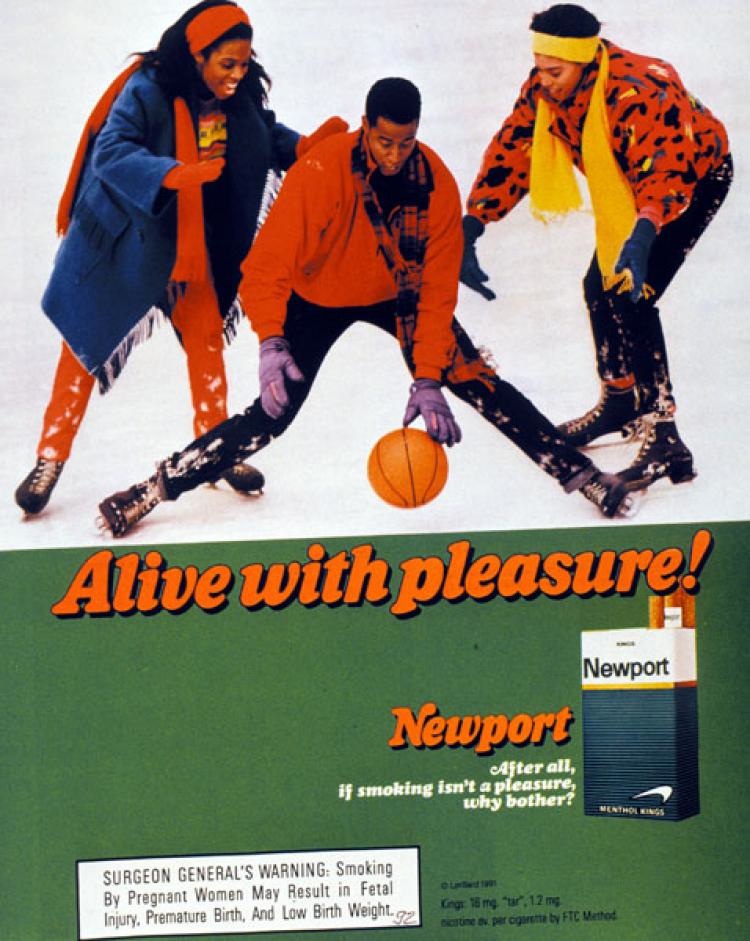New Institute Charts Murky Waters
Submitted by Diane Farsetta on
The multinational law firm Hunton & Williams -- whose clients include Altria, DTE Energy, General Dynamics and Pfizer -- has launched The

Submitted by Diane Farsetta on
The multinational law firm Hunton & Williams -- whose clients include Altria, DTE Energy, General Dynamics and Pfizer -- has launched The
Submitted by Judith Siers-Poisson on
The number of warning letters sent by the U.S. Food and Drug Administration to corporations has dropped by 50% in the last decade. In 2002, the regulatory agency decided that all warning letters should go through the office of its chief counsel, a move "designed to strengthen the letters and make them legally consistent and credible." But the change may have just succeeded in slowing the process to a crawl.
Submitted by Anne Landman on
 Discovery Communications is spending $100 million to re-make its home television network into "Planet Green," the first television channel devoted entirely to environmentally-themed programming.
Discovery Communications is spending $100 million to re-make its home television network into "Planet Green," the first television channel devoted entirely to environmentally-themed programming.
Submitted by Judith Siers-Poisson on
The American Medical Students' Association (AMSA) graded 150 medical schools on their conflict-of-interest policies and the influence that drug companies have with faculty and students. Only seven of the schools surveyed received an "A"; 60 got a failing grade, for not having sufficient policies or for not participating in the survey. AMSA president Dr. Brian Hurley called strong conflict-of-interest policies "incredibly important to protect the educational experience." Dr.
Submitted by Judith Siers-Poisson on
 The U.S. Department of Agriculture has found that Tyson Foods routinely gave antibiotics to chicken it raised to sell as meat, and labeled it as antibiotic free.
The U.S. Department of Agriculture has found that Tyson Foods routinely gave antibiotics to chicken it raised to sell as meat, and labeled it as antibiotic free.
Submitted by Sheldon Rampton on
"After waging an aggressive public relations campaign against Wal-Mart for three years, the company’s full-time, union-backed critics, who once vowed never to let up, are putting down their cudgels," writes Michael Barbaro.
Submitted by Anne Landman on
 The Campaign for Tobacco-Free Kids, who negotiated with Philip Morris to draft the bill to allow the
The Campaign for Tobacco-Free Kids, who negotiated with Philip Morris to draft the bill to allow the
Submitted by Sheldon Rampton on
The Center for Science in the Public Interest points out that ExxonMobil has just announced "for the second consecutive year" that it is cutting funding to groups which promote skepticism about global warming.
Recently while browsing the Web I came across UrbanDictionary.com, which is sort of a wiki of contemporary slang. I found some of the newer words listed there amusing, like "hobosexual" (the opposite of metrosexual; someone who cares little about their looks), "consumerican," ("a particularly American brand of consumerism"), and "wikidemia" ("an academic work passed off as scholarly yet researched entirely on Wikipedia").
Submitted by Daniel Haack on
Former MSNBC correspondent Jessica Yellin admitted on CNN’s Anderson Cooper 360 last night that during the run-up to the war, "the press corps was under enormous pressure from corporate executives, frankly, to make sure that this was a war that was presented in a way that was consistent with the patriotic fever in the nation and the president's high approval ratings." Appearing as part of a panel discussing Scott McClellan’s book, What Happen
Center for Media and Democracy (CMD)
520 University Ave, Ste 305 • Madison, WI 53703 • (608) 260-9713
CMD is a 501(c)(3) tax-exempt non-profit.
© 1993-2025